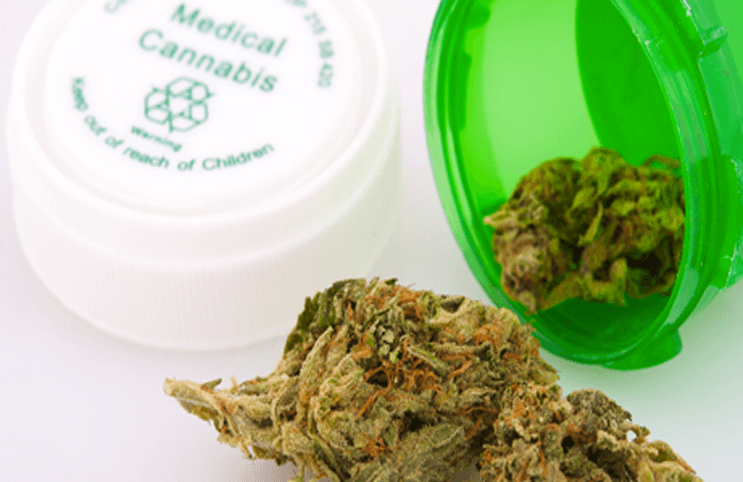On Monday, the American Academy of Pediatrics asked the Drug Enforcement Administration (DEA) to reclassify marijuana as a less harmful substance in order to facilitate research of the substance for medical use.
“The AAP strongly supports research and development of pharmaceutical cannabinoids and supports a review of policies promoting research on the medical use of these compounds,” the AAP statement reads. The group recommends that the DEA reschedule marijuana from a Schedule I controlled substance to Schedule II.
The U.S has five different schedules for drugs under the Controlled Substances Act. The Schedule I label is reserved for the drugs that the DEA considers to have the highest potential for abuse and no “currently accepted medical use.”
Marijuana has been classified as Schedule I for decades. Other substances that are classified as a Schedule I substance with marijuana include heroin and LSD. Cocaine and meth are two substances that have classified as Schedule II substances. The government therefore believes that marijuana is more dangerous than cocaine and meth…which is crazy!
If the DEA reclassified marijuana as a Schedule II substance, it would not make marijuana legal, but it would ease the restrictions associated with researching the drug.
The AAP does not support marijuana legalization. In fact, the group has been strongly against the growing trend of marijuana legalization around the United States. The AAP, however, “strongly” supports the decriminalization of marijuana use and they encourage pediatricians to “advocate for laws that prevent harsh criminal penalties for possession or use of marijuana.”
The statement made yesterday is the first change to AAP policy on the issue since 2004. At that time, the group did not request a schedule change.
Who is responsible for regulating controlled substances?
The DEA is the federal agency primarily responsible for regulating controlled substances like marijuana. The Food and Drug Administration (FDA), and the National Institute on Drug Abuse (NIDA), are the two agencies that provide the DEA with recommendations pertaining to the appropriate level of restriction for various substances.
The FDA is already engaged in a review of the medical evidence surrounding the safety and effectiveness of marijuana. The evaluation was initiated due to a request from the DEA, following a number of citizens’ petitions asking for a review. According to the Controlled Substances Act, the government must consider eight factors when deciding the schedule under which a substance should be classified. These include its potential for abuse, the state of current scientific knowledge about the substance and its psychic or physiological dependence liability.
“FDA can’t comment on the suggestion to change the schedule for marijuana, as the latest FDA review of the issue — known as the 8-factor analysis — is currently ongoing, FDA press officer Jeff Ventura said Monday. “However, FDA agrees with the call by the AAP for rigorous scientific research into the uses of marijuana … [and] supports those in the medical research community who seek to study marijuana.”
In 2001 and 2006, the DEA made requests to the FDA for an evaluation of marijuana as a result of public petitions requesting a rescheduling. The results of these evaluations were not favorable for the marijuana community and the DEA regulators upheld the Schedule I label on marijuana. The FDA cited that there was insufficient research about marijuana’s effectiveness in treating a number of ailments.
The FDA has never advocated for the legalization of marijuana, but in 2014 it said in an update to its guidelines on marijuana that it is “aware that there is considerable interest in its use to attempt to treat a number of medical conditions, including, for example, glaucoma, AIDS wasting syndrome, neuropathic pain, cancer, multiple sclerosis, chemotherapy-induced nausea, and certain seizure disorders.”
The removal of the Schedule I label is the biggest catalyst for the marijuana industry. Once it is removed, researchers will be able to study marijuana and understand the medical benefits that are associated with the plant. This would speed up the drug approval process for pharmaceutical companies, which would in turn lead to incremental revenue growth for those companies.
MAPH Enterprises, LLC | (305) 414-0128 | 1501 Venera Ave, Coral Gables, FL 33146 | new@marijuanastocks.com










